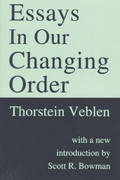Question
Question 1: Consumer Choice (a) A consumer has a budget of $120 a week to spend on food. He likes potatoes (x) which cost $3
Question 1: Consumer Choice (a) A consumer has a budget of $120 a week to spend on food. He likes potatoes (x) which cost $3 a unit, and pies (y) which cost $5 a unit. Calculate and illustrate his budget constraint.
(b) Assume that the consumer's budget increases to $144 a week. Calculate and add the impact of this change to your diagram in (a).
(c) This consumer considers potatoes and pies to be, for him, perfect complements (he consumes them in a 1:1 ratio). Following on from (b), what will his optimal consumption bundle, therefore, contain? Add this to your diagram with an appropriate indifference curve.
Question 2: Supply and Demand Application (a) Consider the following market information and solve for equilibrium price and quantity:
D: P = 24-2q
s: p = 6= q
(b) Following on from (a), calculate the size of the consumer and producer surplus. You may wish to illustrate this market.
(c) Assume that policy makers now apply a price floor of $18 to this market: . Calculate quantity demanded, quantity supplied the size of the resulting surplus (excess supply).
(d) Following on from (c), calculate the size of the minimum deadweight loss caused by this intervention into the market. You may wish to illustrate this market.
(e) A village holds a parcel of land in common which is available for villagers to graze bison. Five residents currently have the $50 required to purchase a calf and intend to sell the adult bison in one year. The price a villager will get for a bison depends on the amount of weight it gains while grazing on the commons, which in turn depends on the number of bison calves, sent onto the commons, as shown below.
Price per Bison in one year ($)
1 80 2 74 3 64 4 60 5 54
Currently, all five villagers intend to purchase a calf and graze it. Assume that villagers can purchase government bonds, instead, for $50, which return 40% in one year. What would you advise the villagers to do, to optimise the village's return? Explain your answer.
Question3: Monopoly (a) Consider the below information for a monopoly. Use this information to calculate this firm's profit.
d;p = 32-2q
s; p = 6=q
ac = mc =8
(b) Calculate the loss of welfare (deadweight loss) due to the monopolisation of this market. You may wish to sketch a diagram to represent this market.
(c) Consider the following profit function for a monopoly. Use this information to calculate its fixed costs:
pie root = 80Q - Q squared - 22
(d) Calculate this firm's profit if it produces 37 units.
(e) Calculate the quantity that this firm should produce in order to maximise profit.
Question 4: Government (a) The city council is considering putting on a fireworks display. The willingness to pay for this public good is in the table below. If the cost of the fireworks display is $80, should the city council provide this public good? Explain your answer. If yes, how much should each rate payer be billed? Rate Payer Willingness to Pay Douglas $75 Tayla $45
(b) Green Day are debating which song should lead their reunion tour playlist. They have narrowed it down to three songs. As a consultant to the band, you gather data based on the willingness to pay model (cost benefit). Based on the data in the table below, which song would you recommend they lead with? Show your calculations.
b) Green Day are debating which song should lead their reunion tour playlist. They have narrowed it down to three songs. As a consultant to the band, you gather data based on the willingness to pay model (cost benefit). Based on the data in the table below, which song would you recommend they lead with? Show your calculations.
Armstrong Dirnt Cool When I Come Around $20 $16 $8 Good Riddance $16 $20 $16 Boulevard of Broken Dreams $16 $4 $16
(c) Green Day are considering how much to spend on a photo shoot. The record company has suggested $5,000 while the manager wants to spend $10,000. The below table contains group member preferences for the photo shoot. If the two proposals are put to the vote, which proposal will win and why?
Armstrong $3,000 Dirnt $6,000 Cool $10,000
Step by Step Solution
There are 3 Steps involved in it
Step: 1

Get Instant Access to Expert-Tailored Solutions
See step-by-step solutions with expert insights and AI powered tools for academic success
Step: 2

Step: 3

Ace Your Homework with AI
Get the answers you need in no time with our AI-driven, step-by-step assistance
Get Started


